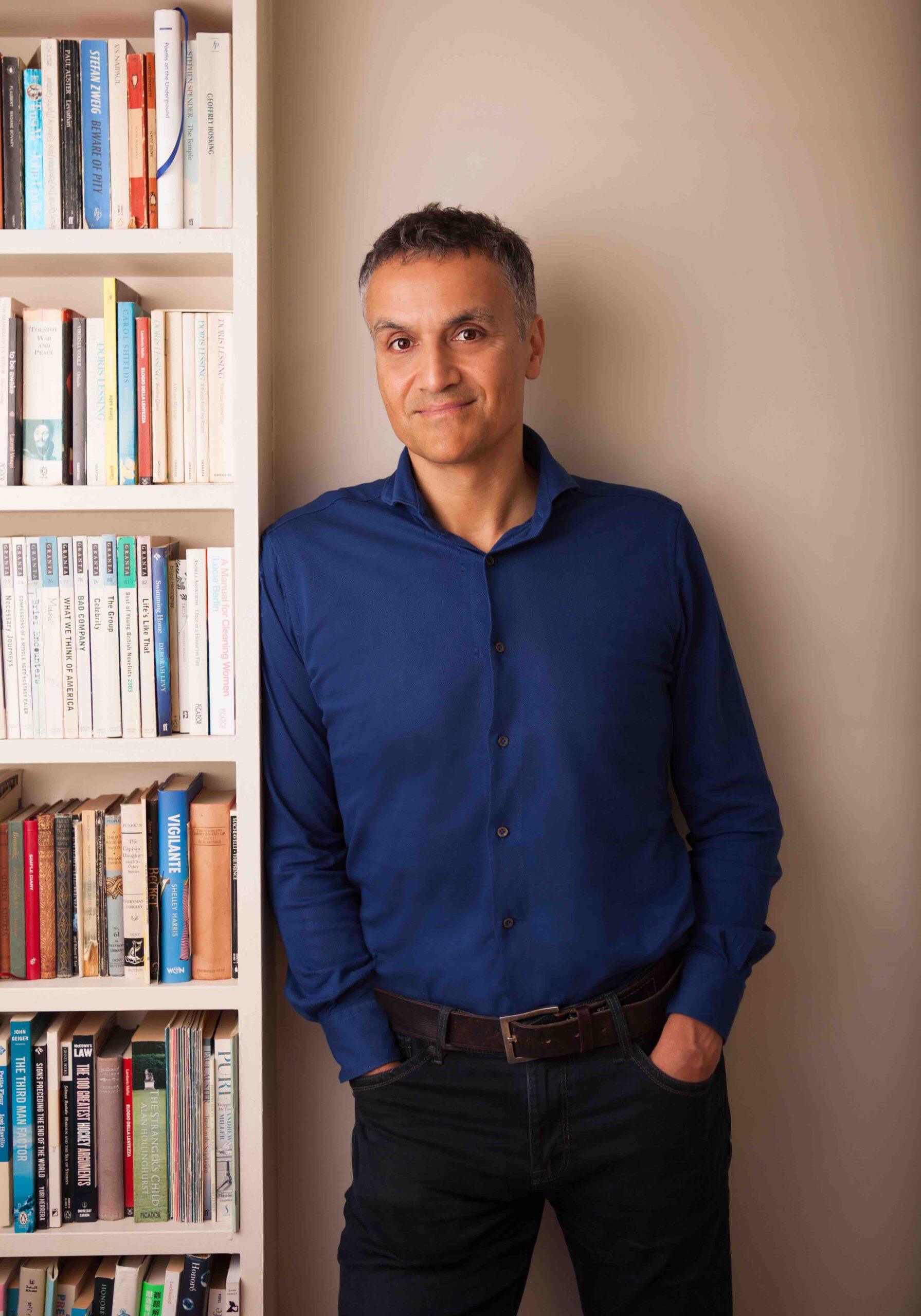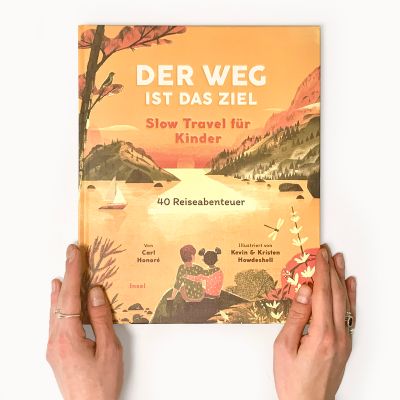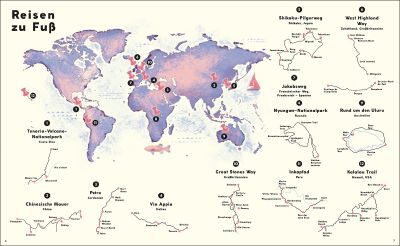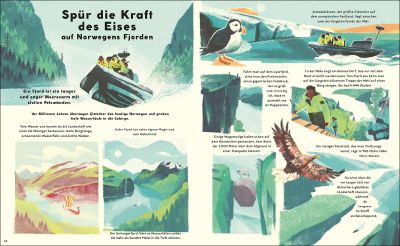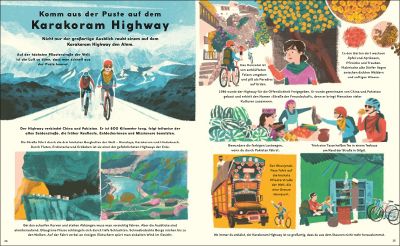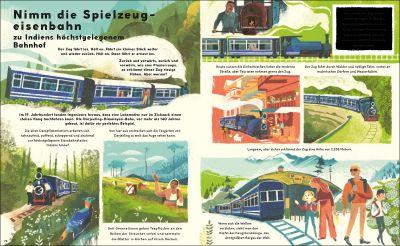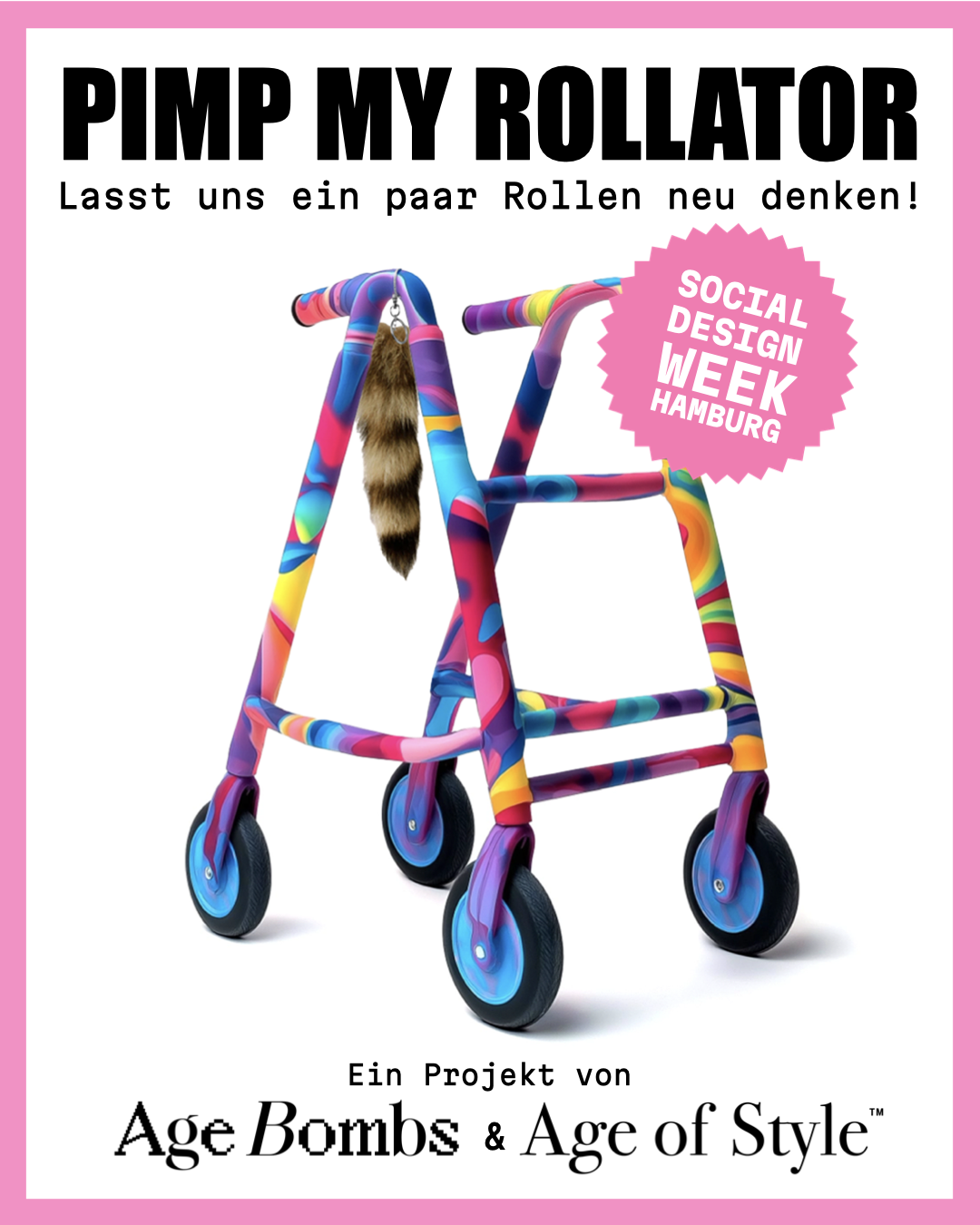Slow down –
slow travel for kids of any age
The pioneer of the Slow Movement and advocate against age discrimination, Carl Honoré, has written a children’s book that celebrates unhurried travel.
Carl Honoré is an award-winning Canadian-British journalist and author, primarily recognized as a pioneer of the Slow Movement. The Slow Movement encourages deliberate deceleration as a counter-trend to the fast-paced, time-optimized hectic lifestyle – promoting mindful, more intense, and healthier living. In our culture, slowness is often seen as a negative byproduct of aging. This connects to another area of Honoré’s work, examining how society views aging and the critical aspects therein.
In his 2018 book „Bolder: Making the Most of Our Longer Lives,“ Carl Honoré brings these two interests together, offering an inspiring and encouraging perspective on aging. In a culture that glorifies youth and often presents aging as a problem, Honoré argues that aging is not only inevitable but also something positive and liberating. Through extensive research and poignant personal stories, „Bolder“ challenges our existing attitudes and biases, inviting us to perceive the later years as a time of growth, opportunities, and fulfillment.
Returning to the beginning – from Slow Living and graceful aging to a children’s book
Now, Honoré surprises with a new project: His open and positive view on aging and the appreciation of the process inspired him to write a children’s book that serves as a bridge between generations. In his children’s book „It’s the journey, not the destination,“ translated into German in 2023, he shows young people at the beginning of their life journey that life is not just about achieving goals, but also about enjoying the journey itself. Finding joy in every moment is what truly matters, regardless of age. Just as Honoré celebrates aging in his book „Bolder,“ his vividly illustrated children’s book charmingly demonstrates that every phase of life is valuable. Both books, though written for different age groups, deliver a powerful message: Regardless of our age, we can and should lead a fulfilled, mindful, and joyful life.
Where does your journey begin?
With this question, Carl Honoré’s children’s book invites you to 40 unhurried travel tips. His thesis: When you travel slowly, you can experience the entire diversity and beauty of our world. Deceleration turns traveling into a celebration for the senses and strengthens inner resilience. The book is a hymn to traveling mindfully and at a comfortable pace. Therefore, many slower modes of transportation are featured: the bicycle, the train, the ship, and walking.
It not only sparks the imagination of those who have never visited these places before but is also intriguing for those who have traveled extensively. A cross-generational delight and a wonderful gift from the older generation to the younger, from elders to children.
We are fans of the cross-generational concept that Carl Honoré unfolds in his new book and had the opportunity to converse with the guru of the Slow Movement:
When you plan less, when you stop following a script, when you start just going with the flow in the moment, travel becomes so much richer and more joyous.
What does perfect slow travel look like?
Across the world, people are waking up to the folly of turning every moment into a race against the clock. They’re fed up with rushing through life instead of living it. And they find that slowing down is the best way to do everything better and enjoy it more. This is especially true for travel. Too often, travel is ruined by the four horsemen of the modern apocalypse: Stress. Impatience. Distraction. Busyness. When you move too fast through the world, you miss the small details and fine grain that make each place thrilling and unique. You visit places without really experiencing them – and then return home more tired than when you left. When you slow down, travel levels up. You start noticing things. You connect with people. You experience the world in all its richness and wonder. When you slow down, you create Proustian memories that last a lifetime. That’s why the Slow travel movement is growing…fast! Let’s get one thing clear, though: traveling Slow does not mean doing everything at a snail’s pace. That would be absurd. Sometimes a little speed and adrenaline are just what the doctor ordered. A Slow vacation can feature yoga on the beach or swinging in a hammock. But it can also include bungee jumping and white-water rafting. What matters is not how fast the activity is but how you approach it. Because Slow travel is ultimately a mindset. It means being present, curious and alive to the moment. Plugging into local culture. Treading lightly on the planet. Sometimes it just means stopping and staring.Slow Travel is a godsend for children. It opens the mind. Makes you stronger and happier. Teaches you about the world and yourself. Brings you closer to other people.
Did you do all the travelling yourself?
No, I did not. Some of the journeys I did myself. The others I researched by reading many other people’s accounts, interviewing fellow travellers and watching video blogs. It was a lovely way to ‚visit‘ places from my desk.
Which of the 12 tips you give at the end of the book is your favourite or the most important trip to you?
Hard to choose because I love them all! But if I have to choose I would go with tip #5: Embrace serendipity.We lead such hyper-scheduled lives, with every moment planned in advance. But that squeezes out the beauty and magic of serendipity. It’s like John Lennon once said: „Life is what happens while you’re busy making other plans.“ When you plan less, when you stop following a script, when you start just going with the flow in the moment, travel becomes so much richer and more joyous.
Do we have to live slow to travel slow or can we start traveling slow to find a new (slow) in life?
Both! The ideal is to live Slow all the time, that Slow not just be something you do on vacation. And certainly if you lead a Slow life in general it will be easier to embrace Slow travel: you won’t feel so many withdrawal symptoms!That said, travel can be a wonderful starting point for embracing a Slow life. Because usually when you travel you have more control over your own time and pace and rhythms. This makes it easier to experiment with a Slow approach.
When was the last time you „went fast“?
I’ve been doing Slow for so long now that these day I almost never go too fast!
How does getting older feel to you? Slow or fast?
A bit of both! I play a competitive hockey and I definitely cannot run as fast as I did in my youth. But my read of the game is better now, which allows me to make faster and smarter decisions. One thing we tend to gain with age is an ability to be more present and in the moment. To slow down and savour the here and now. I notice this in my own life, too.
What do you see as the biggest challenge facing our society with demographic change?
Ageism. We are now living better for longer than ever before, yet have we ever felt worse about ageing? The very idea of growing older provokes fear, guilt, shame, disgust and denial.
If we’re going to make the most of our longer lives, we need to vanquish ageism and the cult of youth.
Do you believe there is a rupture, conflict, or lack of understanding between the older and younger generations ins our society?
Not nearly as much as some people make out. Because there is so much variation within generations. Not every 20 years old is the same and not every 65 year old is the same. There is plenty of rupture and conflict and lack of understanding within generations.
That said, in many countries, older people on average have more property and wealth – and that can lead to voting differently and conflict.
How can we live together well and better in the future – old and young? Do you know of positive examples from other cultures that you find inspiring?
We need to start mixing up the generations wherever possible. At work that means creating multigenerational teams and reverse mentoring programs. It means having children of different ages teaching and learning from each other in schools. It means designing neighbourhoods that attract people at every stage of life.
From your perspective, what are the most important issues related to aging that require more attention and solutions in our society?
Tackling ageism. Breaking down age silos to mix up the generations. Rewiring the financial system and labour markets so that everyone can support themselves throughout their lives. Making prevention a top priority of healthcare systems. Creating a culture that is less sedentary and less lonely.
If we’re going to make the most of our longer lives, we need to vanquish ageism and the cult of youth.
Do you believe there are enough well-designed products for people wit age-related limitations? How do you see this? Are there products you wish were different or new?
I think we need more and better products designed for people with limitations of ANY kind – not just those caused by age. I would start by improving travel products such as buses and trains, planes.
What product did you buy which you would never have thought of 10 years ago?
Reading glasses. They are a colossal nuisance. I am always losing or breaking mine. They’re also hard to keep clean. I wish someone would come up with a better solution for failing eyesight!
Do you want to give us a sneak peak on your next project ?
I am putting together a Renaissance Retreat in Tuscany. It will be for anyone of any age looking to start a new chapter in their lives.
Many thanks for this interview and we are looking forward to learn more about the Toskana Retreat in a bit.
More information
BOOKS
TED TALKS
Why we should embrace aging as an adventure

